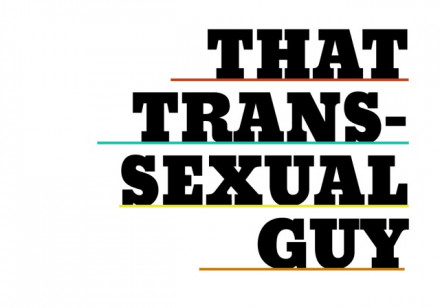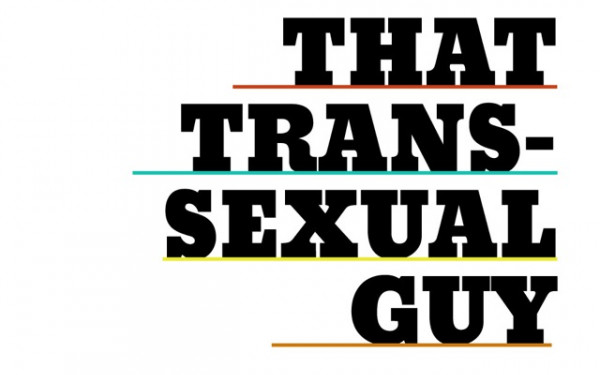Interview With Jen of We Happy Trans
I had the privilege this week of interviewing my beautiful friend Jen, of We Happy Trans Internet fame. We met online, where we managed to discuss Kant and flirt for all the world to see. She kindly agreed to answer my questions.
Oliver Leon: You and I met on Twitter’s #transchat hashtag. I know you help out regularly with that—could you please share with The Link’s readers what that is?
Jen: There were a few of us, and I think you were part of the original cabal, who repeatedly found ourselves chatting on weekend mornings about various trans topics on Twitter. It got to the point where you’d only have room for a winking smile if you wanted to reply to all the people on a given thread.
Avory Faucette, who works at the National Center for Transgender Equality and is @queeractivist on Twitter, finally stepped forward and offered #transchat as a way for us to tag the conversation. It grew. A lot. Quickly.
It’s now a monthly event, formally a two-hour moderated discussion on a specific issue, such as housing, race, sex, family, etc. Informally, the hashtag functions as an effective way to communicate with trans population on Twitter.
You created this excellent website called We Happy Trans. Wanna tell these folks what that is?
It would be my pleasure! Simply put, it’s a place for sharing positive trans experiences. The majority of the content on the site is from the 7 Question Project, which asks trans people to submit their responses, in writing or on a video, to a set of questions designed to frame experience positively, such as, “Who has been most supportive of your transition?” or “What are you doing to make the changes you’d like to see in the world?”
How did the site come about?
The full story stems from the tragic narratives I encountered before transition and how my own experiences diverged from them. In short, though, I was complaining on Twitter that there weren’t any positive stories about trans people online. A friend challenged me to do something about it. So I did.
The site as it is now is really a collaborative effort, with input from contributor Noah Alvarez, design and maintenance by Kai, and all the many amazing trans people sharing their stories with us. I’m in continual awe of the fierce intelligence, beauty and drive of the trans community.
What’s your favourite thing about being out as trans?
I don’t speak Canadian, but assume you mean “favorite”? For me, transition was like taking off a heavy backpack, one I’d been wearing every waking, working, bathing and dreaming hour for 30 years. The lightness was nearly inconceivable. On a public level, being out as trans makes the simple fact of my existence a political act. My choice becomes a challenge to everyone who witnesses it, a potential call to greater authenticity. For me, that’s a gift to be embraced.
And yes, I do see my transition as a choice. The impulses that led to it certainly weren’t, but availing myself of the opportunities afforded me by my context and particular privileges is a choice, one I’m grateful to have. I cannot predict how my gender variance would have manifested in a different time or culture, or had I been a different race, class, body type, etc.
It’s precisely because of such privilege that it’s important for people like me to remain visibly trans, to use what power we’ve been given to shift people’s perceptions of trans people and to stand up for those in our community who don’t have equal access to resources.
What sort of lovely future vision do you have for the trans** *community?
If it’s up to me, one with a lot more purple. More broadly though, trans people will soon be as visible, and as an integrated part of global culture, as gay people are now swiftly becoming. It is inevitable.
More prophetically, I can’t help but contemplate how every despised minority develops some special strength while building their own community on the margins, one that becomes valued by the wider society. What precious jewels are being awakened in the crucible of our suffering? I suspect that our boon will be nothing less than the wisdom of active transformation. And what could be more needed in the world?
I find people often mention or ask me about “the end” of my transition—“Do you think that there is an end?” I feel like there is an implicit sentiment of a sedentary gender. But change never stops! Can you predict where your gender will go next?
I often use the past tense, saying that I “transitioned” the day I asked the world to call me Jen. That’s my way of dictating the terms of transition, of combating our society’s pathological fixation with genital surgery as the defining moment of becoming, and instead acknowledging the profound power of names.
But yes, in a real way we are all always in transition. The human condition is one of unrelenting change and to deny that reality is to court a particularly pernicious form of suffering. Some journeys are just more visible than others!
Do you think there was a particular moment or person in your life that inspired you to be an optimist?
Honestly, I’ve never thought of myself as an optimist. I’ve been too long in the world, seen to much inexplicable tragedy and know history too well to hold any naïve hopes. What may appear as optimism stems from the realization that the fundamental nature of manifest existence is deep joy. Once you’ve tasted that, you never forget, even in the midst of terrible suffering.
Okay, so we’re both nerds for transsexual gender theorist, activist and performer Kate Bornstein. Why is she one of your heroes?
Did you know that I met her recently? She’s even more wonderful in person. Auntie Kate’s story, as told in Gender Outlaws, was the first trans narrative I encountered that expressed the joy I speak of. There’s an irreverence and playfulness to her and her work that can’t be contained. It spills over into the kind of beautiful mess that I adore.
Have your studies in theology and philosophy affected or influenced your views on gender in any way?
There’s a tension between what I’ve grasped abstractly and what my lived experience is. One of the joys of growing older is an increased capacity for discerning the difference in values of the two. I will say this about my education: It gives me pause, and having a moment between event and response can be the difference between reactive conflict and compassionate, curious engagement.
What explanation have you come up with for yourself about transsexuality? Is there a “trans gene”? Does society make you that way? Way back in your mother’s womb, did you choose this life?
Oddly, my trans status is the one area of potential intellectual investigation utterly resistant to either etiology or teleology. I just don’t care. I am a trans woman. Full stop.
Is androgyny the ultimate answer to earth’s gender woes?
Oh Lord, I hope not! As a justly celebrated practitioner of high femme, as a lover of the masculine and feminine in others, whether male, female, both or neither, universal androgyny is about as appealing to me as a world where beige is the only color. I want it all. And then more.
What do you want to be when you grow up?
Aporetic.
Anything else you wanna mention?
You’re cute.




